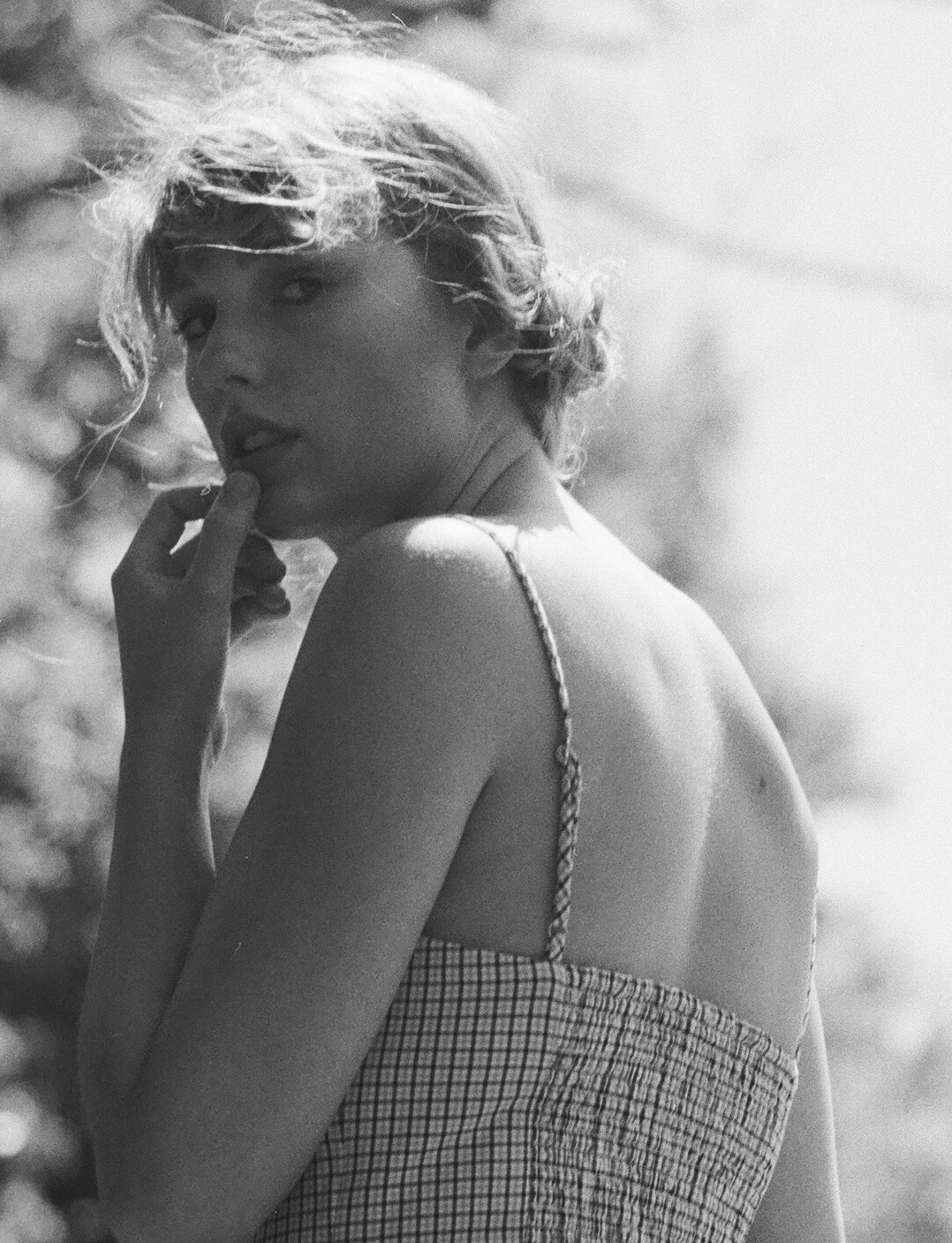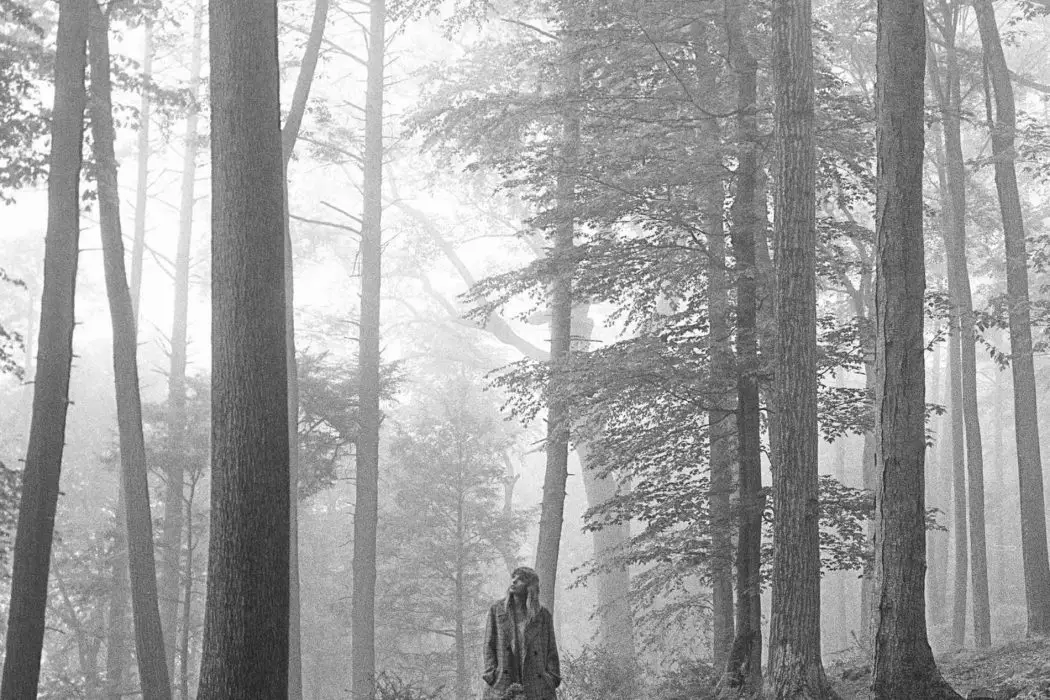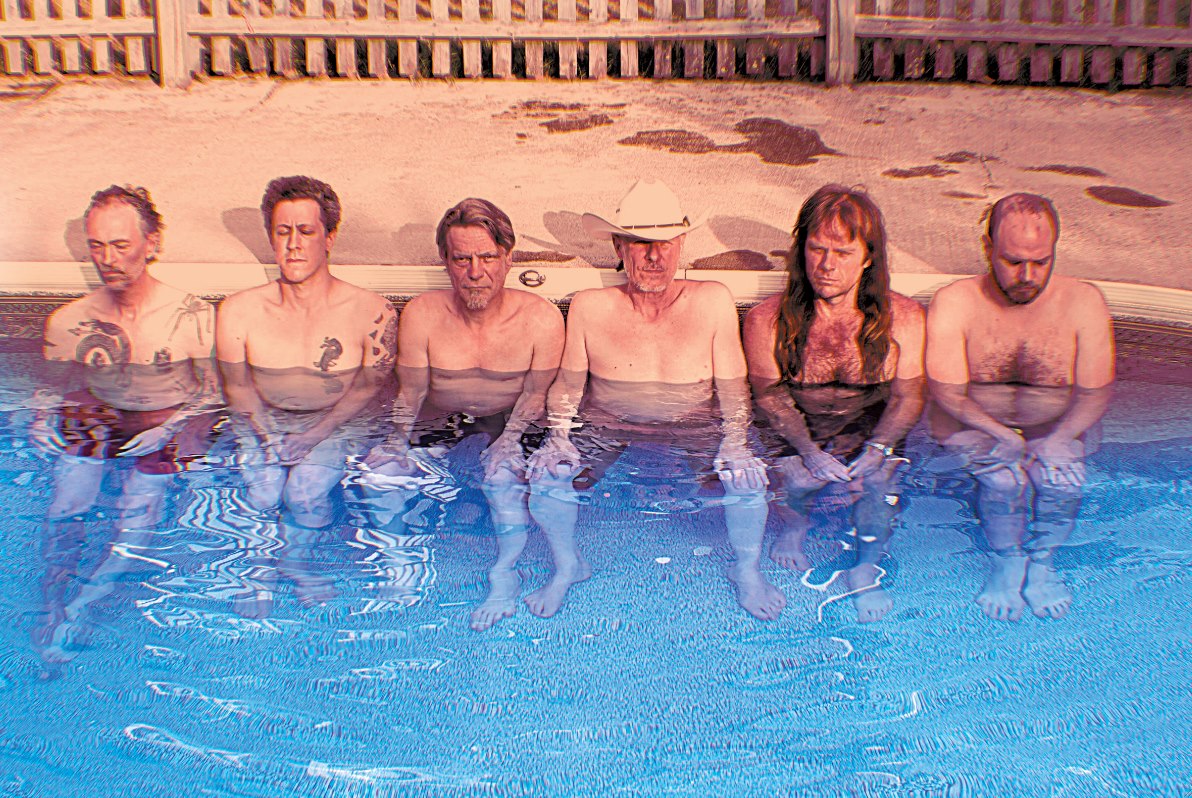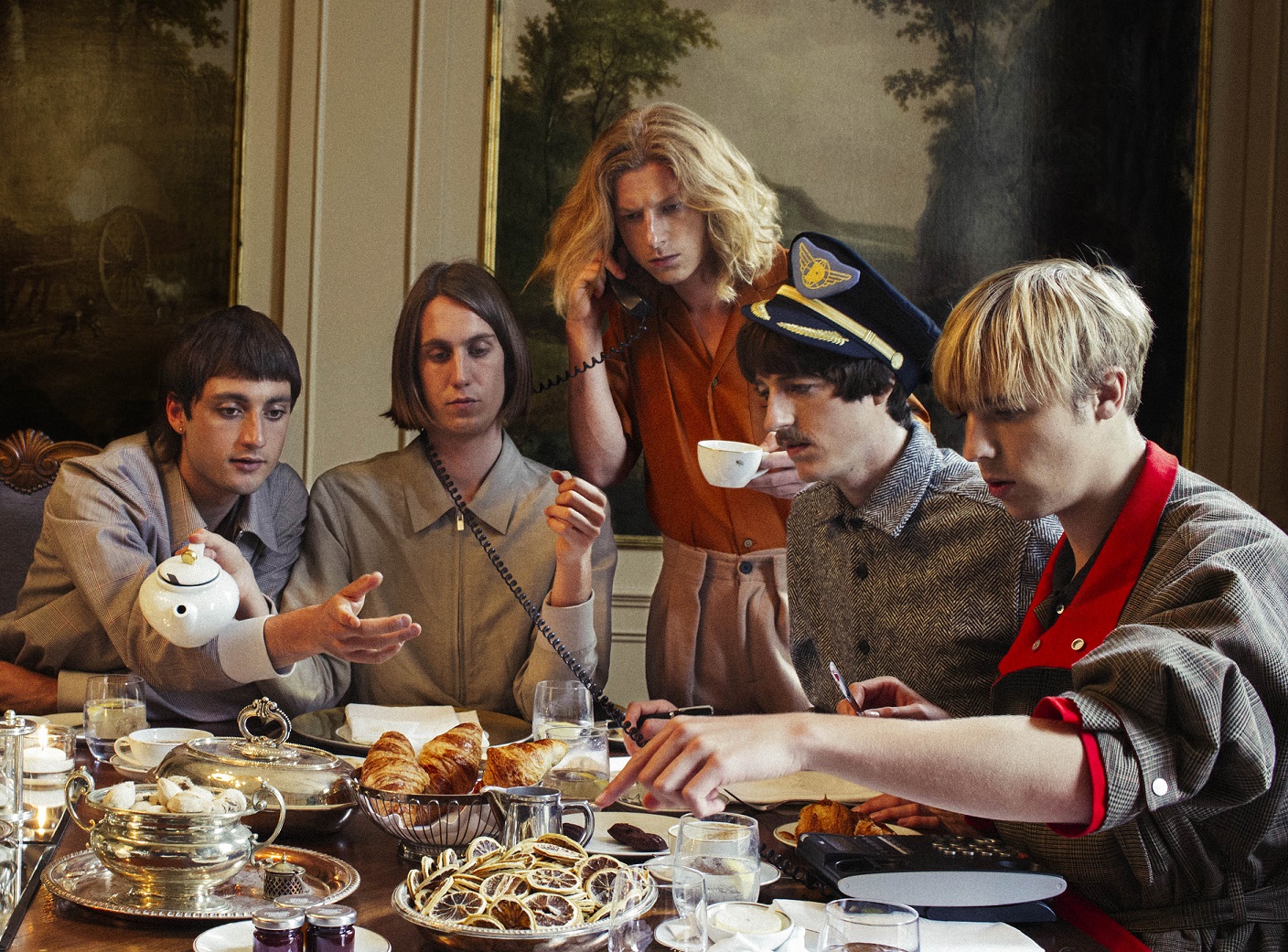Atwood Magazine’s writers discuss Taylor Swift’s surprise eighth album ‘folklore’, which was made under isolation, released without a rollout campaign, and represents a refreshing change in direction.
Featured here are Atwood writers Josh Weiner, Lowndes Commander, Erica Garcia, Madison Zoey Vettorino, Nicole Almeida, Nina Schaarschmidt, Mitch Mosk, and Lexi Lane.

— —
This album comes less than a year after her last release, Lover. Typically, a Taylor Swift ‘era’ lasts about two years. Does folklore feel like another iteration of the Lover era, or something completely new?
Josh: Well, it’s hard to say it’s completely new, since it’s an album by the same artist, with much of the same production team (namely Jack Antonoff), as Lover, released only last summer. But that much really emphasizes how surprising it is to hear how drastically different folklore sounds from its predecessor. The production is much more subdued and less power-pop oriented; if any gleeful, bursting-with-color, million-dollar music videos like “ME!” come out of folklore, I would be highly surprised. Plus, while Lover largely documented Swift’s personal and love life, folklore is packed full of third-person narratives. That virtue alone distinguishes the new album from Lover, and perhaps Swift’s entire discography.
Nina: To me, folklore feels like a journey back to Taylor Swift’s roots. In her first records, everything was more country and folk, less pop if you ask me. The new record is very different to her last one, Lover. Lover was a beautiful record, telling her fans stories about her personal life, but also very commercial, with a lot of glitter and big shows. folklore has none of the pastel colours that Lover did or any of the big music video productions. This new record is indeed very different to the Lover era, in fact it feels like a beautiful love letter to one of her first eras.
Madison: I’ve discussed this with several people, most recently one of my best friends who is also an avid Taylor Swift listener and has been for over a decade, like myself. She said that folklore feels very separate to her, a completely different era. I think the distinction between folklore and Lover is much blurrier to me. For one, they both have a whimsical feel to them – which I think you can argue most of Taylor’s music does, especially her earlier stuff. That being said, I think a reason that Lover and folklore don’t necessarily feel like different entities to me is because I sort of expect a Taylor Swift era to last for two years, which is around how long it takes for her to usually release new music, and so “folklore,” at least by that timeline, is premature. At the same time, it definitely feels like music for the present moment. I think right now, we’re all kind of going back to basics, finding ways to return to ourselves in a moment that feels very confusing and difficult to comprehend. I think folklore, as Nina mentioned, is at least sonically, more similar to some of Taylor’s older music. It’s Taylor returning to herself, but also marks a new experiment for Swift, as a lot of these songs aren’t about her life in the present moment, or not even about her at all. In that way, it’s very different from Lover, which is obviously very based on her life (ex: “Cornelia Street,” “Soon You’ll Get Better”).
Erica: folklore feels completely and beautifully new to me. Whether she planned this or not – which I don’t think she did because none of us really planned for a year like this – it just sounds like a step in a different direction. Lover was vibrant, lively, summer. folklore is – and this irony isn’t intentional – peace, epiphanies, legendary. This album feels like Taylor Swift taking in a deep breath and letting out an exhale in the middle of the journey that is her discography. I think it’s completely new but also completely her, and I’m grateful for her work and the thrill of the surprise.
Lexi: It feels both reminiscent of older lyrical shining moments in Red, while also continuing in the vein of her shift at the start of reputation. folklore is completely her own control and ability to own her masters, so she is able to create the record she wanted to, when originally wanting to name Speak Now “Enchanted” only to be rejected by the label. folklore feels happy and new, allowing her to freely create — hence along with the explicit label on the record also.
Nicole: folklore feels completely disconnected from Lover. There are no rainbow colours, the very in-your-face optimism of the previous record is nowhere to be found, and the narratives on folklore are slightly more whimsical but feel more mature even when reflecting upon made-up characters. Lover was so all over the place, how the same album could house “ME!” and “Soon You’ll Get Better” and “The Archer” always felt like a mystery to me – it was more of a mix and match of previously recycled Taylor Swift sounds, the production at times fought with the songwriting to tell the story. folklore is much more sonically cohesive and the production is crafted in a way that highlights Swift’s songwriting rather than fighting against it for the listener’s attention. folklore feels much more organic to me, whereas Lover felt much more like a glamorous major label, at times tiring, release. folklore sounds like a more mature return to form, to the young Taylor Swift that wrote songs about Tim McGraw, whereas Lover seemed more like we were seeing hearing from Taylor Swift the entity, celebrity, adult woman who knows all eyes are on her.
Mitch: Let me first say that I quite like this record; it’s probably my second favorite Taylor Swift album of all time, second to 1989 – a record I love for entirely different reasons. 1989 defined a multi-year space for me: Its songs are big, euphoric pop outpourings that feel genuine and pure, authentic and unapologetic. Swift has shined in various moments in the ensuing six years, but nothing compares to the monumental achievement of her fifth studio album.
I do hope folklore represents the beginning of a new era for Swift’s artistry, but I would not be so bold as to say it’s “something completely new.” I don’t think we will remember it in the same way we will 1989 – it’s not quite the zeitgeist, nor is it revolutionary. It’s a transition – a pop record dressed in folkish garbs. She came out of the country world and into the electronic-fused pop one less than a decade ago, but her roots remain in that space of pop-country. folklore is, to me, a stripped-back pop album. Its songs are still largely centered around (and lean into) the chorus, and its lyricism, to me, feels like more of the same blend of world-weaving, pseudo-intimate storytelling off of which Swift has built her career.
If you look at how much Taylor Swift has written, recorded, and released between just 2014 and 2020 alone, the breadth of style and sonics is highly impressive – she appears always willing to try new things, for which I applaud her – but I think she does so safely, dipping her toes in before taking a plunge. folklore is a toe dipped in shallow folk-pop waters – a step forward, but it’s nothing I haven’t heard before.
How do you think the current societal/cultural/political climate contributed to the lyrics on this album?
Erica: As many of her previous songs will showcase, Taylor Swift has always been one to criticize, romanticize, and even mock traditional American ways of growing up. Many of her earliest songs are reminiscent of traditional country music that longs for the achievement of the American dream – love, family, happiness, romance. While I feel folklore isn’t as politically undertone as Lover may be, songs like “the last great american dynasty” feel the same as her critique about American culture (especially for young women) and politics that can also be found in songs like “Miss Americana and the Heartbreak Prince,” “Mean,” and even “You Belong With Me.” In my opinion, establishing herself as an American artist in this way is one of my favorite things about her writing.
Josh: I wouldn’t say it’s an overtly political album and I don’t think the global pandemic or the resurgence of #BLM influenced its lyrical content in any noticeable way. Like Erica said, there is some cultural commentary and analysis of American traditions, but that’s something that Swift has touched upon in her past records. folklore is a remarkable album but it’s not a report on the World in 2020 the way albums like RTJ4 et. al. are.
Mitch: This all kind of depends on how we define those words, doesn’t it? If I’m being honest, I’m going to say a heavy “no.” Indeed, she has at times confronted toxic masculinity, gender tropes, and misogyny in scattered lyrics, but most of her work is thickly veiled in stories basking in the throes of idealized teenage years and young adulthood. Personally, I think Taylor Swift is a romantic through and through. Love and heartbreak are the artist’s bread and butter, and on every one of her eight studio albums, Swift has strived, often successfully, to rekindle old flames in novel ways in attempts to keep her love feeling fresh, and her heartbreak just as raw. She has been involved in at least ten of the greatest love stories ever told, if you take her music at face value. She’s good at love songs, and that’s why she keeps respinning those same yarns. I would love to see a pointed, critical Taylor Swift album that takes open aim at politicians, social inequality, injustice, and more – even just a LITTLE would do. Consider how The 1975 gave Greta Thunberg six whole minutes to discuss climate change action on the beginning of their latest album, Notes on a Conditional Form. That opener felt revolutionary, and slightly uncomfortable.
It’s no dig at her, but Taylor Swift has never made me feel uncomfortable.

Lover was colourful and glittery, while folklore, right from the start, with its sepia-toned and clean aesthetic seems more subdued. How do these albums compare?
Josh: Lover was designed to be an album with universal appeal– no one can listen to that record without a smile coming to their face at some point or other. folklore isn’t designed to conquer the charts in the same way, and it isn’t as much of a feel-good record. But the songwriting here is as strong as anything we’ve seen from her, so the album can still be enjoyed on those grounds.
Nina: folklore is an album that Taylor has written in a time of global isolation, detached from the crazy world she normally lives in. Lover is a very commercial record, made to be liked by anyone, any age or gender. folklore on the other hand is a very honest record, reflecting on events in her past. She wrote out of different perspectives, not only her own. Due to this, Lover is full of happy songs, making your feet want to dance and folklore is filled with honest lyrics about life, making your body want to rest on the couch and reflect.
Madison: For one, I think the monochrome coloring on the album cover really allows folklore to feel like the storybook that it is. Listening to folklore feels like paging through a scrapbook with stories jotted down in the margins; I think the presentation really helps achieve that. Also, I do think it’s important to look at the contexts in which Taylor produced/created these two albums. Lover wasn’t created during the middle of a global pandemic and upending of life as we’ve known it. In my opinion, releasing an album with pastels and sparkles and unicorns during 2020 would feel somewhat faux. 2020 is darker, a very grounding year. In my opinion, folklore reflects that. I also think the album cover of Taylor standing in the woods and looking up is really effective. She seems like she’s considering, “Where do I go from here?” That’s a sentiment I think a lot of us can relate to this year. I also think folklore, while a gorgeous album, is more jaded than Lover is, the tones contribute to this.
Erica: If we take a step back and think about how, as music listeners, we were consuming music last summer compared to this one, I think there’s an obvious answer – there’s been a drastic change in the world we live in. Lover was full of romantic hope, and was more reminiscent of Swift’s older songs, especially from the Speak Now era. While many people keep saying that this new album is her returning to her roots, I kind of think that the dreamscape sounds and lyrical back and forth of inner monologues and confessions are an extension of her artistry on 1989. If I were to sum it up, folklore sounds like the kind of peace and tranquility I have been searching for the entire time we’ve been in quarantine.
Lowndes: In short, I think Lover felt like togetherness, while folklore came about from isolation. Lover followed the darker and edgier reputation and sounded whole and clear, like it was made to enjoy outside at golden hour with all your friends. And musically, it also showcased a catalogue of all the sounds Taylor Swift has delved into over the years. But folklore feels reflective, and is a record that only could’ve come from having all this time in isolation to dream up these worlds and stories, as well as reflect on her own life. And musically, I think it falls into a new era of sound, while still sounding like quintessential Taylor Swift.
Lexi: I feel that folklore is more of a continuation of reputation sound and aesthetic wise, than it is to Lover. The new album sonically carries a darker tone, albeit less production focused, with songs like “mad woman” and “hoax” easily being able to fit as reputation bonus tracks if they weren’t connected to Swift’s latest release.
Nicole: folklore is out here pretending Lover never existed, and I can’t say I’m too mad about that. It boggles my mind that Taylor Swift released “ME!” and “hoax” within one year of each other, and I’m much more favourable towards the toned-down, introspective world of folklore. There obviously are moments of introspection in Lover, but the over-the-top production and explosively happy tone of the album makes cynical people like me scoff and be slightly annoyed. It just felt forced. Whereas every feeling explored in folklore feels more genuine and confident, it is what it is and doesn’t need to make a big show about it. I agree with Lexi, I feel like folklore is a continuation of reputation rather than one of Lover, and as a lover of reputation, folklore makes me extremely happy despite how different the albums sound.
Mitch: Why can’t they be the ying to each other’s yang? I think these records co-exist neatly, and if you ask me, we set the bar a little too low for one of the biggest artists of our time, who has access to some of the best producers of our time – Aaron Dessner and Jack Antonoff have both played huge parts in the creating of this album, and those familiar with Dessner’s influence can hear it clearly throughout folklore.
Yet this isn’t The Beatles’ shift from Sgt. Pepper’s Lonely Hearts Club Band to The Beatles (aka The White Album) – or something perhaps a little more recent, like Bon Iver’s total transition from their self-titled record into 22, A Million (there are dozens more better examples that just aren’t coming to mind). I contend that Lover and folklore “sound” quite different, but are far more similar than people are giving them credit. Listen to songs like “Lover,” “august,” “The Archer,” and “cardigan,” some of the walls between these record break down. I don’t mind; I think it’s expected. The most thrilling moments on folklore, I find, are the more somber, totally stripped moments toward the end: “epiphany,” which is the closest she comes to making something “indie folk”-adjacent, and the intimate closers “peace” and “hoax.” I think these tracks best represent the differences between 2020’s Taylor Swift, and her 2019 “counterpart”.
Watch: “cardigan” – Taylor Swift
What was your favourite song on folklore?
Nina: My favourite song on folklore is “the 1”, a beautiful and honest song about the cliche “what could have been situation” between two people who ended up not being together.
Madison: It changes everyday! My top three, or “holy trinity” as Swiftie Twitter refers to it, have to be “august”’ “mirrorball,” and “the 1.” The first time I heard “mirrorball” I teared up. The song describes a feeling that is so familiar for anyone who is a people-pleaser, or perfectionist. I think “august” feels vaguely related to “Tim McGraw.” The lyric that tipped me off to that was the bit about calling when you’re back at school (on “TimMcGraw” she sings, “September saw a month of tears / And thankin’ God that you weren’t here / To see me like that” and also, “And I’m back for the first time since then / I’m standin’ on your street”). For me, “august” feels like a story about her younger self, the self who wrote Tim McGraw. The song also feels like the nostalgic summer song you play when you catch yourself thinking about a lost love from summers past (“But I can see us lost in the memory / August slipped away into a moment in time / ‘Cause it was never mine”). Finally, “the 1” just feels like such a gorgeous testament to feelings that never seem to go away.
Erica: I haven’t been able to decide between “invisible string” and “epiphany.” There is something about the line, “Time, curious time / Gave me no compasses, gave me no signs,” that keeps pulling me back to it. I have loved Taylor Swift’s music for the majority of my life, and I know I’ll find another beautiful reason to have a new favorite song tomorrow.
Lowndes: Initially “mirrorball” was my favorite. It has this classic yet nostalgic sound, and I could immediately tell Jack Antonoff had something to do with making it. However, “peace” came out of nowhere and became my number one; it’s reminiscent of “Last Kiss,” but it feels more mature, both sonically and lyrically. More than any other song on the record, I feel like “peace” encapsulates all the questions that come with loving someone.
Lexi: Underrated, in my opinion, but I love “the last great american dynasty.” It weaves in both the history of Rebekah Harkness and Swift’s connection to her, as well as allusions in relatability of their personal lives. (Harkness’ “bitch pack” and Swift’s once perceived “squad”) Overall though, the song is just upbeat and moves at a pace I really enjoy.
Nicole: “exile” came straight for my heart from my first listen, who knew Taylor Swift and Bon Iver would mesh so well together?? I keep listening to this song on repeat, and the more I do, the more I’m reminded of A Star is Born – yes, I do think “exile” could be the centerpiece of a movie, and this may or may not be because Justin Vernon’s deep voice is strangely reminiscent to Bradley Cooper’s when he’s Jackson Maine. I also absolutely love “mirrorball”, “the 1”, and “invisible string” – they’re more hopeful and sweet, and work extremely well to counterbalance the album’s darker moments.
Josh: I’ll go with “the last great american dynasty,” but there are many candidates!

Do any particular lyrics stand out to you?
Josh: Hearing her sing “the greatest films of all time were never made” on “the 1” got my mind running. I thought about how it might be literally true, which was fun, but it was more serious and rewarding to consider how that line could function as an apt metaphor for missed opportunity. Another standout lyric has to be her first F-bomb on record, featured in “betty.”
Nina: The refrain of “cardigan”: “And when I felt like I was an old cardigan/under someone’s bed/ you put me on and said I was your favourite”. A beautiful metaphor describing the alienation that a young person, trying to find themselves in this world can feel sometimes.
Madison: Too many to write them all down! I get chills every single time I hear her sing, “And I’m still a believer, but I don’t know why / I’ve never been a natural, all I do is try, try, try / I’m still on that trapeze / I’m still trying everything to keep you looking at me.” Those lyrics are so poignant. I think “mirrorball” is about her fame, and the way she debunks being considered a “natural” is really powerful – and shocking. Another standout bunch of lyrics are in “the 1” when she sings, “In my defense, I have none / For digging up the grave another time.” I think anyone that has found themselves thinking again and again about a situation that isn’t relevant anymore will relate to those lyrics. I know “epiphany” is technically about her grandfather’s experience during wartime, but I think a lot of the lyrics relate to healthcare workers during the COVID-19 pandemic. “Something med school did not cover / Someone’s daughter, someone’s mother / Holds your hand through plastic now” are such moving lyrics. I think those make it clear to me this is about the pandemic, specifically the reference to holding hands through plastic [gloves] now. I also feel moved when she sings, “Only twenty minutes to sleep / But you dream of some epiphany / Just one single glimpse of relief / To make some sense of what you’ve seen.” Wow. This song memorializes the sacrifices healthcare workers have made and their simply awe-inspiring work. I could go on and on. This album has so many lyrics on it that tell beautiful, niche stories.
Erica: “They told me all of my cages were mental / So I got wasted like all my potential / And my words shoot to kill when I’m mad / I have a lot of regrets about that.” I’m not quite sure if I can explain why these lyrics hit me in the way they do, but they do. “Only twenty minutes to sleep, but you dream of some epiphany,” is another line that makes me feel honored to be alive to witness Taylor Swift’s writing.
Lowndes: The line in the bridge of “mirrorball,” “and I’m still a believer but I don’t know why / I’ve never been a natural, all I do is try, try try” really stood out to me. It feels like this matter-of-fact declaration that she still believes in the good and the hope in things, even when it might not make sense. That line led me towards self-introspection in the best way.
Nicole: I’m going to have to agree with Erica on this one, the line about mental cages and wasted potential hit me from the first time I heard it.
Listen to this album and consider how it was made – in isolation, during a global pandemic, less than one year after Swift’s latest release, and the first one post her public spat with Scooter Braun. How does folklore fit into the larger Taylor Swift narrative?
Lexi: She isn’t tied to a strict album cycle of a two-year turnaround, an image portrayal, or a clean censor — all changes evident on folklore. It’s a record that feels true to Swift’s growth as an artist and not toning down herself at 30 for a younger audience as much. There’s also a separate clean version of the album though, so kids who grew up with her and new ones alike can still appreciate her music.
Mitch: I think it’s Taylor Swift’s best attempt at authenticity, post-1989.
Did the surprise element of folklore, or the lack of a proper album release rollout, influence the way you received the album?
Josh: It did– I was playing Lover in my living room the other day when my siblings mentioned, “Hey, you know her new album comes out tomorrow?” I never would have thought I’d learn about an imminent release from one of the world’s biggest stars in such a manner. But I think it’s appropriate and altruistic in a certain sense. Given what the pandemic has done to the economy, it wouldn’t have felt so genuine to see Swift pour millions of dollars into promoting this album. But she still loves and cares about her fans– those, like myself, who have experienced the intimate nature of her concerts can attest to that much– and wants to bring them some smiles by means of new music in this tough time. A surprise digital release was the right way to go about matters.
Nina: I saw an image on Taylor Swift’s Instagram the day before, announcing the big event. The image was in the sepia folklore aesthetic, and from that second on, I expected this record to be entirely different from the former one. I felt like I received the album in a much calmer way than the ones before, given the fact that this one did not have any million dollar promotion events before the release. The record very much felt like a beautiful way to escape the crazy things that are going on right now, in order to focus on what really matters.
Madison: Absolutely! I wasn’t emotionally ready for folklore! Haha. But actually, it absolutely did impact the way I viewed this album. Usually we have a bit of time to speculate what Taylor’s next ‘era’ is going to be like, but this time we were thrown into it and that was really exciting. Also, the day I found out about folklore was one of the happiest of 2020, to me, so thank you for that, Taylor! I was expecting Lorde (another frequent Jack Antonoff collaborator) to surprise drop an album during quarantine, because it’s been a while since Melodrama, but it was actually Taylor who did and I couldn’t be happier! I was just thinking about how I’ve listened to Lover a million times already and how the songs are starting to feel like a comfortable old sweater to me. Now we have a whole new bunch of Taylor songs to be excited about. Not to mention the way she decided to drop this album was something so new and thrilling.
Erica: The only thing I have to say was that I was grateful for it. This album dropped right when I was really struggling to discover new music I could resonate with, and it seemed like out of nowhere, folklore reminded me I could go back to an artist I already admired. Of course, when you open Instagram and Taylor says, “Album out midnight,” you literally go to your room and cry, but it was honestly a blessing for me personally. I don’t think there was a lack of anything. Taylor Swift has enough dedicated fans that this album will be incredibly loved and cherished no matter how she shared it with the world.
Lowndes: Totally, 100%. Typically my favorite Taylor Swift songs are never the ones released as singles, so knowing I could digest the album all at once instead of little by little made me even more excited for it than I usually might be. Also, in the midst of uncertainty and unrest, it makes sense not to draw out any promotion, but rather just to give the world something good.
Nicole: After I saw the announcement, it made me extremely happy to not only realise that Swift was putting out an album in less than 24 hrs, but also the album seemed like it abandoned all the fluff, Easter Egg-hunting, showy elements of the Lover campaign and was just going to be released and taken in as a whole. It felt different to take in a Taylor Swift album without seeing theories about what every single shot in music videos, number of emojis in a tweet, or pins in her jacket meant, but I liked it – the music spoke louder than Taylor Swift the person for once, and it worked.
Mitch: I think it shocked me to my core. I’ve had the most difficult time wrapping my brain around folklore because I couldn’t separate the art from the artist, from the media. With a few days and several listens under my belt, I can now break safely away from my initial surprise and confusion. I like this record – I don’t love it. But as for first impressions, I remember being impressed by how subdued Swift sounds throughout folklore; she taps into a natural rhythm, and each song flows pretty organically through and through.

If listeners like this album, what other indie artists or albums would you recommend they listen to?
Mitch: I made a whole playlist, entitled “a beginner’s guide to indie folk,” that covers everyone from Daughter and Bon Iver, to Bear’s Den and Gregory Alan Isakov, to Gordi and Phoebe Bridgers, to The Staves, Henry Jamison, Julien Baker, and even Nick Drake and Elliott Smith. If you’re attracted to the ambience of folklore, I think you will be stunned by some of these artists, each of whom has carved out their own little space full of depth, nuance, character, and intimacy. In my opinion, they are each exceptional talents who will never reach the critical mass or level of acclaim Taylor Swift maintains. I believe their art to be far superior to hers, but ultimately that is in the eyes and ears of the beholder. Please, if you like folklore and don’t already know this music, test the waters and see what you find. I hope you are pleasantly surprised.
Nina: Personally, I would recommend listening to Maisie Peters. She has not released an album yet, but her singles are beautiful and honest. Her songwriting and storytelling reminds me personally a lot of Taylor Swift’s way.
Madison: I’m glad you asked! For one, I went through a huge indie-folk phase my freshman year of college where I listened to pretty much exclusively that, so I have a few recs. Also I do want to note that while Taylor did collaborate with Bon Iver on this record and it isn’t a textbook pop album, I don’t think this is an indie-folk album. I wouldn’t classify this as indie either, or alternative. I think it’s genreless, and borrows from all of those genres and beyond. Now that we’ve established that, my first recommendation is Swedish folk sister duo First Aid Kit. Something about folklore feels very tied to Stay Gold, First Aid Kit’s 2014 record. Both have that whimsical, folky, sparkly, storybook sound. Second, I’d suggest Yoke Lore, whose music I absolutely adore. I do consider him to be sort of genre-less too, but a lot of his stuff has a folk sound to it so if folklore piqued your interest in exploring this genre, check him out. Fleet Foxes are a favorite indie folk band of mine (listening to their song, “Mykonos” while driving through the mountains of New Hampshire is a spiritual experience, highly recommend everyone tries this!). I also love The Head and the Heart, who moved to more of a pop-y sound now, but are very indie-folk on their first, eponymous album. The Arcadian Wild and Lord Huron also come to mind. This is a beautiful genre and I really hope folklore urges people to experiment with listening to it!
Erica: I learned to play the acoustic guitar when I was young and the first song I learned was a Taylor Swift song. My love for acoustic music doesn’t fall far from my love for indie-folk music and that same vibe, and if listeners enjoyed folklore I feel they might also enjoy Foy Vance, Kim Taylor, Brandi Carlile, Jessie Ware, Hollow Coves, and the Duke of Norfolk.
Lowndes: I also think that while folklore borders on Indie/Folk, I wouldn’t put it exactly in that category. But I might recommend artists like Gordi and Angie McMahon, or Erin Rae, Waxahatchee, and Jade Bird.
Nicole: I think this record is by no means indie, and while it’s slightly more folk-influenced than Swift’s previous work, it’s also not too different from her previous work. I still think this album is a pop album, just a more folk-leaning/acoustic pop. Regardless, listen to these artists if you like folklore: Angelo de Augustine, Maya Hawke, Delilah Montagu, Jasmine Jethwa.
It’s far too soon to tell, but let’s talk about it anyway: How do you feel folklore fits into Taylor Swift’s greater discography?
Josh: I guess it depends on what her future albums resemble. Will the rest of her music be indie folk and third-person-narrative oriented? If so, then this really does mark the beginning of a New Taylor Swift. If not, then folklore may be more akin to a record like 808s & Heartbreak: ultimately an anomaly in the artist’s catalogue but an enduring and innovative one at that.
Mitch: Time will tell; I really think the answer to this question depends more on what Swift does next rather than what’s come before. Yes, this is new terrain, but it will really feel like the start of something if her next album is a progressive and experimental lo-fi, minimalist immersion (note: This record is none of those things). I think folklore attempts to capture some of the loneliness and isolation of life in quarantine through less-produced sounds and more nuanced instrumentation – not to mention more emotional lyricism – and for that, I give credit where credit’s due: For those looking for an escape, and for reminders that they are not alone, they may find in Taylor Swift’s latest record a safe space. If it’s able to do that for audiences right now, its “place” doesn’t really matter as much.
What’s the one word that comes to mind after listening to folklore?
Mitch: Comforting.
Nina: Authentic.
Madison: Empathy. These songs are largely not about Taylor’s present life – at least I don’t think. Some of them tell stories of her past, or stories of her family’s past, or stories of people who she’s never known or met. This album is a very empathetic one, I believe. She’s able to find pieces of herself in these people she is telling tales about, and puts that into music, and then shares it with her listeners to find a piece of themselves in the songs too. It’s one vibrant, beautiful cycle. Like an “invisible string” tying everyone together — just like the song says.
Erica: Exhale.
Lowndes: Warm.
Lexi: Rejuvenating.
Nicole: Meditative.
Josh: Cohesive. 16 songs, one cohesive artistic statement.
– – – –

Connect with Taylor Swift on
Facebook, Instagram, Twitter
Discover new music on Atwood Magazine
? © Beth Garrabrant
folklore
an album by Taylor Swift








